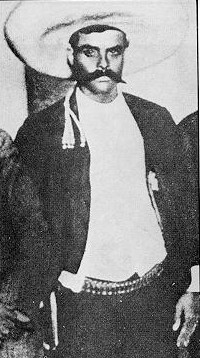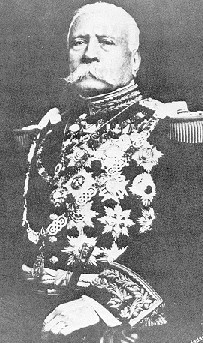Sarah Watts
 HST 104: The
World Since 1500
HST 104: The
World Since 1500
Office: Tribble B103; Phone: 4867
Fall 2001
Dr. Watts
Course Description: Between 1500 and the present the modern world came into being. This course will introduce the main economic, social, political, and cultural forces that shaped world realities in this period. The course emphasizes learning to ask questions, to analyze, and to think critically and independently.
Course Requirements: The first exam counts 25% of your semester grade and second exam counts 25%. Quizzes count 25% of your grade. Informed class participation and discussion count 25% of your grade. Students are required to come to class on Monday having completed THAT week’s ENTIRE reading assignments unless directed differently in the reading schedule. Your close reading, observations, analysis and questions form a valuable and integral part of learning and thus our class activity should be interactive and democratic, not merely didactic. Therefore class time will consist of lectures AND class discussion. You are responsible for answering the study questions on the course web page and being prepared to discuss them. In class discussions, you must ask relevant questions, connect information among various readings, and make arguments and observations based evidence. As part of your class participation grade, you will be expected periodically to lead discussions on readings. You may use notes taken from your readings and study questions during class discussions. This course depends upon a heavy reading load, often 100 pages a week. You will not complete the course successfully if you fall behind in the reading schedule. Study questions are provided for the Stavrianos text for the first half of the semester. After that, you are expected to be able to determine for yourself the significant questions raised by the material.
Writing: The periodic quizzes and the two exams are essay. These are writing exercises designed to improve your ability to write clearly and effectively. Historical writing requires the ability to use analytical categories to show change over time, to make comparisons and connections between different peoples, regions, periods, and events, to demonstrate an understanding of why or how something happened and to explain its significance. These explanations depend on understanding the complex interaction of political, social, cultural and environmental factors and conditions.
 Texts
and Readings:
Texts
and Readings:
Brower, Daniel, THE WORLD IN THE TWENTIETH CENTURY
Stavrianos, L. S., GLOBAL RIFT: THE THIRD WORLD COMES OF AGE
Achebe, Chinua, THINGS FALL APART
Schlesinger, S. and Kinzer, S. BITTER FRUIT: THE UNTOLD STORY OF THE
CIA COUP IN GUATEMALA
Reading and exam schedule:
THE PREMODERN WORLD
Week 1 European Commercial Capitalism and New World Colonialism.
Stavrianos, Chapters 1, 2.
Remember you must have next week's reading completed by the beginning
of class on Monday.
Study Questions: Stav
1, 2
Week 2 Beginning the Third World:
Eastern Europe and Russia: Stavrianos, 3; Latin America: Stavrianos,
4.
Study Questions: Stav
3 , Stav 4
Week 3: Non-colonized Africa: Stavrianos, 5; Middle East: Stavrianos
6.
Asia: Stavrianos 7. Note: Please read ch.5 for Monday, 6 for
Wednesday, 7 for Friday.
Study Questions: Stav
5, Stav 6, Stav
7
Africa
Week 4 Industrial Capitalism: Stavrianos 8.
Latin American neocolonialism, Stavrianos, 9; Africa: Slave Trade,
Stavrianos, 10; Achebe.
Study Questions: Stav
9, Stav 10
Primary Source: An
African Voice of Protest
THE COLONIAL WORLD OF EUROPEAN DOMINATION
Week 5 The Middle East enters the Third World
Stavrianos, 11.
Study Questions: Stav
11
Week 6 The Second Industrial Revolution and Monopoly Capitalism: Stavrianos,
13. There are no study questions on chapter 13.
Africa: Stavrianos, 14.
Study Questions: Stav
14
Week 7 China: Stavrianos, 15;
Russia: Stavrianos, 16 (review Chapter 3, part III).
Study Questions: Stav
15, Stav 16
First Exam
Week 8 The Japanese Exception: Stavrianos, 17.
Study Questions: Stav
17
Week 9 Beginning of Third World Resistance, Stavrianos, 18 (first read
p. 424-end).
Study Questions: Stav
18
THE WORLD IN THE TWENTIETH CENTURY
Week 10 The Great War and the Russian Revolution: Stavrianos 20.
Brower, 1, 2; (Review Stavrianos, 18, part IV, Russian Revolution of
1905).
Week 11 China's Revolution: Stavrianos, 22; Brower, 3.
(Review Stav. 18, part VII, China).
Other Revolutions: Middle East, Africa, Latin America, Stavrianos,
21, parts I, II, IV, VI, VII, and VIII.
Week 12 German and Japanese Militarism: Brower 4, 5.
(Review Stavrianos, 18, part II, Japan).
Week 13 The Cold War and Global Counterrevolution
Stavrianos 19; Brower 6; begin Schlesinger and Kinzer
(Omit Brower, 8.)
Week 14 Vietnam, South Africa, Cuba; Brower, Ch 7 and 9; finish Schlesinger
and Kinzer.
Stavrianos, 23, part I, part III, A (Vietnam), C( Cuba); IV, A (South
Africa).
Week 15 Middle East, Brower, 10; EU and the Global Economy, Brower
11, 12.
Stavrianos, 21, V (Palestine); 23 II, B (middle East), IV, B (Israe).
Primary Source: World
Bank Development Report
Second Exam: Take home final.